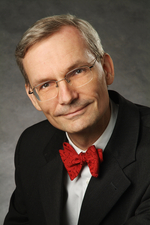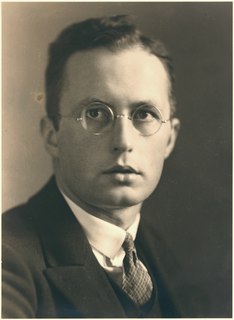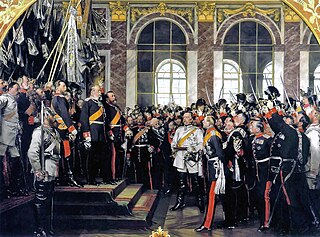
Michael F. Feldkamp is a German historian and journalist.
Leonore Siegele-Wenschkewitz was a German church historian and director of the Evangelische Akademie Arnoldshain. She was co-editor of the journal Kirche und Israel and of the issue Arbeiten zur kirchlichen Zeitgeschichte. She was known for her work on anti-Jewish tendencies in Christian theology.
Hartmut Boockmann was a German historian, specializing in medieval history.

Lorenz von Westenrieder was a well-known author and historian in Bavaria and a critic of the Elector Karl Theordor and supporter of Maximilian IV Joseph. There are several memorials to him in Munich.
Hellmut Diwald was a German historian and Professor of Medieval and Modern History at the University of Erlangen-Nuremberg from 1965 to 1985.
Hermann von Wissmann was a German-Austrian explorer of Arabia.

Rudolf Schieffer was a German historian specializing in medieval history. From 1994 to 2012 he was president of the Monumenta Germaniae Historica.
Friedrich Wilhelm Karl, Ritter von Hegel was a German historian and son of the philosopher Georg Wilhelm Friedrich Hegel. During his lifetime he was a well-known and well-reputed historian who received many awards and honours, because he was one of the major urban historians during the second half of the 19th century.

Werner Georg Kümmel was a German New Testament scholar and professor at the University of Marburg.
Martin Hose is a German classical philologist.

The proclamation of the German Empire, also known as the Deutsche Reichsgründung, took place in January 1871 after the joint victory of the German states in the Franco-Prussian War. As a result of the November Treaties of 1870, the southern German states of Baden, Hesse-Darmstadt, with their territories south of the Main line, Württemberg and Bavaria, joined the Prussian-dominated "German Confederation" on 1 January 1871. On the same day, the new Constitution of the German Confederation came into force, thereby significantly extending the federal German lands to the newly created German Empire. The Day of the founding of the German Empire, January 18, became a day of celebration, marking when the Prussian King William I was proclaimed German Emperor in Versailles.

Moritz Epple is a German mathematician and historian of science.
Franz Herre is a German biographer, historian and journalist.
Michael Maaser is a German historian, archivist of the Goethe University Frankfurt.
Johannes Kunisch was a German historian. He held chairs of early modern history at the Goethe University Frankfurt. (1972-1976) and the University of Cologne (1976–Frederick the Great, published in 2004 and widely acclaimed, gave lasting impulses to Prussian research.
Hans-Christof Kraus is a German historian.
Peter Herde is a German historian. His research activities range from fundamental work on papal diplomacy of the Middle Ages to the history of the country up to the Second World War.
Frank-Rutger Hausmann is a German Romanist and historian.

Helmut Birkhan is an Austrian philologist who is Professor Emeritus of Ancient German Language and Literature and the former Managing Director of the Institute for Germanic Studies at the University of Vienna.
Erich Marcks was a German historian.







